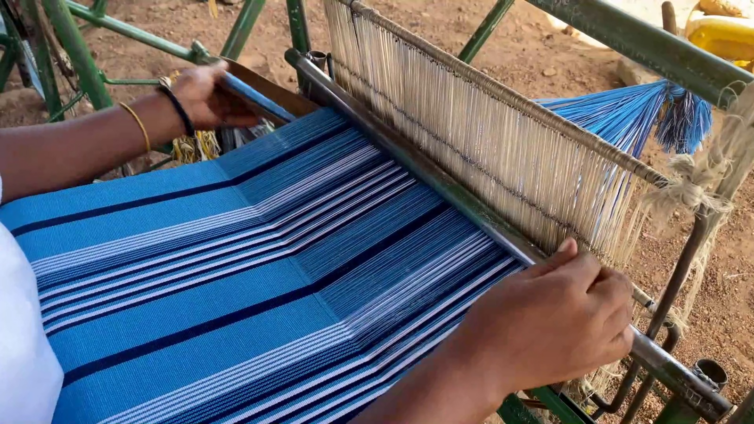Smock producers and their fabric weavers in the Upper West region have expressed concern over the rising cost of raw materials needed to produce traditional garments.
Inflationary pressures and high exchange rates are the primary attributable causes of the soaring cost of the items.
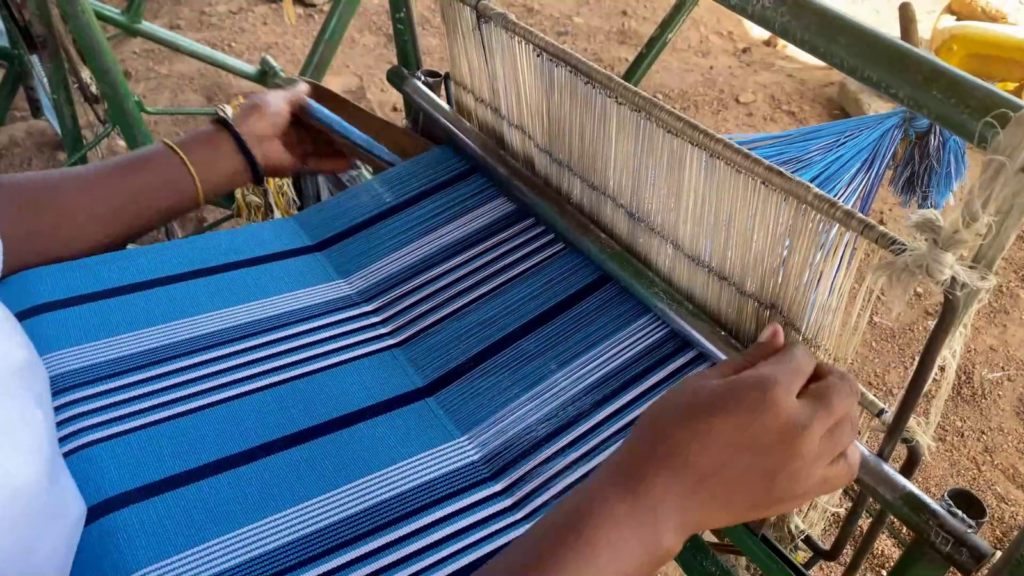
The ballooning costs are consequently impacting the sale of smock which has seen at least 20% upward adjustment in price.
It was a busy morning at Comfort Nyuur’s weaving shop in the Upper West regional capital, Wa.
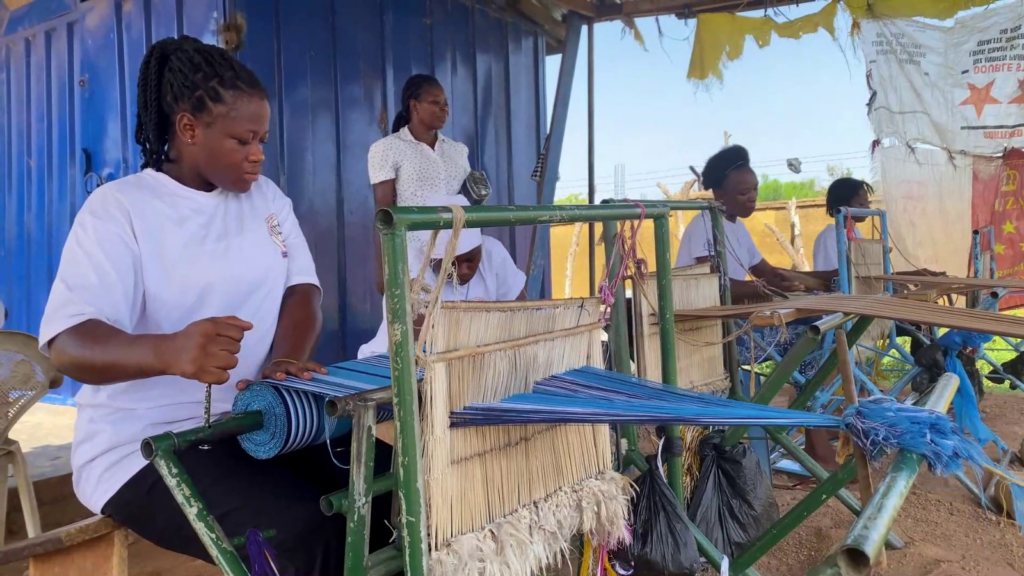
The four young apprentices at the shop were fixated on getting the long stretch of threads wound to a stone loomed into a full piece of cloth.
The fabrics will be used for what is popularly known as smocks.
“There is Dabonye and Wale Dabonye, costing either 400 or 450 cedis,” Ayambilla, a smock producer, said.
The Ghanaian smocks, locally called ‘fugu’ or ‘bakatari’, are common traditional wears notable among natives of Ghana’s regions of the north.
They are made from hand-loomed strips comprising a unique blend of coloured and undyed cotton yarns.
But the cost of materials used in making these beautiful fabrics is ballooning.
Lariba is almost a year and a half in the weaving industry. She explains the increasing cost of materials is impacting her sales.
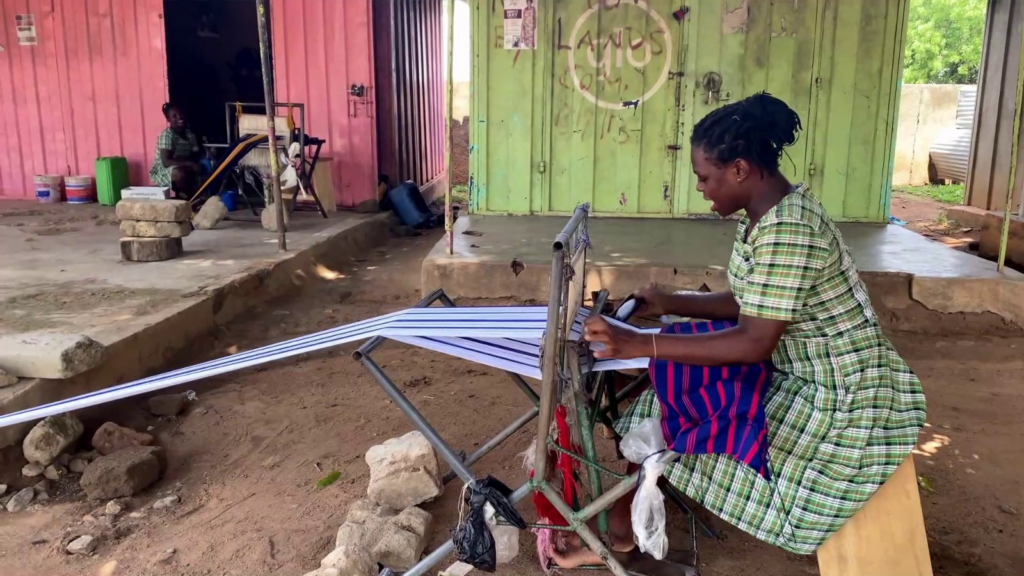
“The threads are expensive now. If you don’t calculate well in making the cloth, you’ll incur losses. Now, the threads aren’t even enough and expensive as well,” she said.
The hand-loomed yarns are intricately sewn together by hand to create a distinctive plaid pattern that characterizes the smock.
Despite the beautifully crafted clothes, the embroidery adorning the neckline creates a distinct look for the attire.
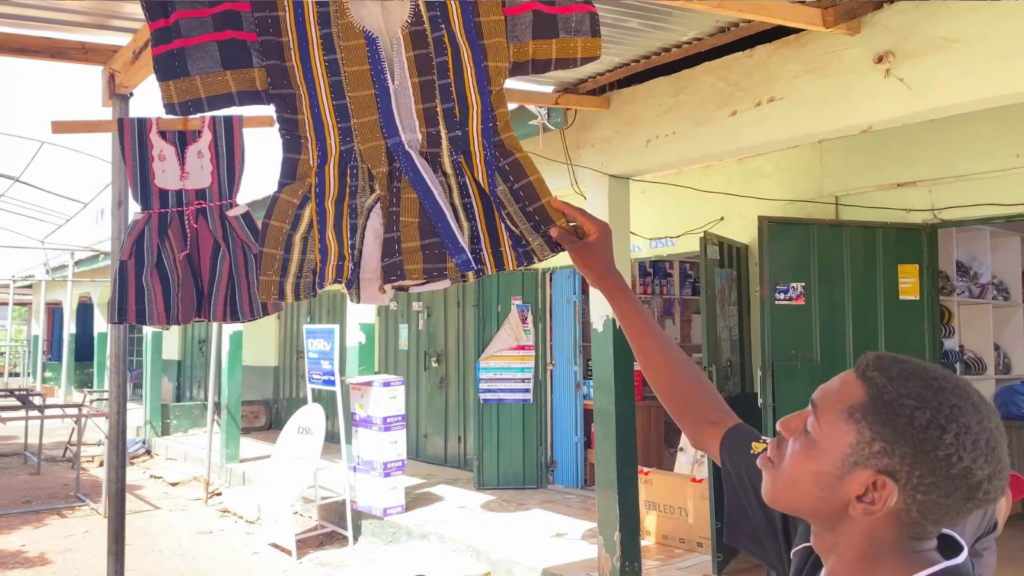
“For the females, you can get some of the smock at 180 or 250 cedis and 350 cedis. Those of high quality are usually expensive. Because we invest enough money buying the raw materials, the prices keep shooting up. It’s not our fault the prices keep rising,” Ayambilla said.
Smock weaving is one of the major trades in the region with several weaving machines dotted across various market centres and homes.
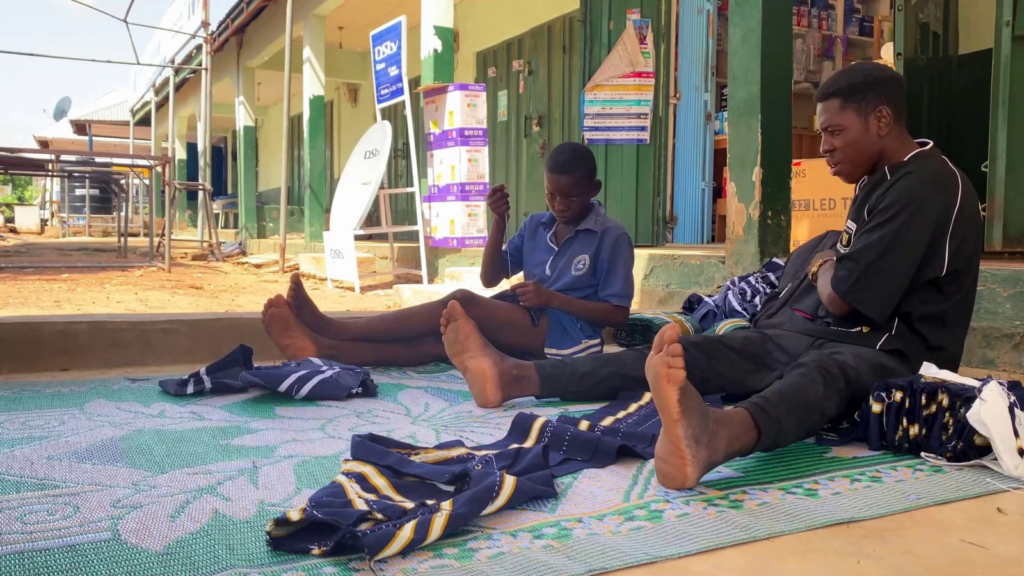
However, the increasing cost is negatively impacting the once vibrant market.
“Things are expensive now. Let’s say if I want to buy one myself, because it’s expensive I wouldn’t buy it and later find it difficult to get something to feed myself. The market is bad now. Sometimes only two people bring their clothes here for me to sow,” he added.
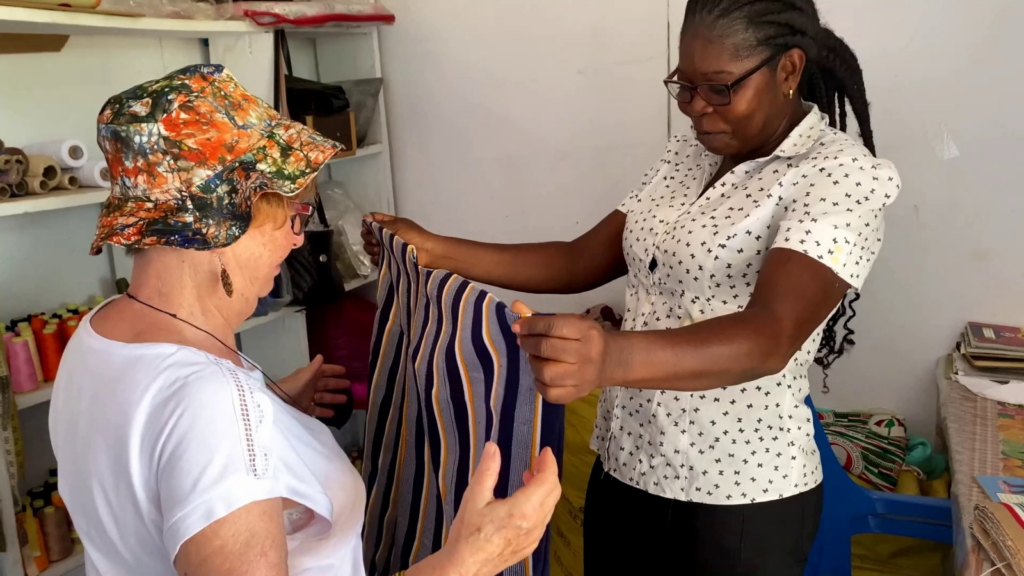
Despite the prevailing economic quagmire, these vendors are unperturbed as they continuously craft and preserve their rich cultural heritage.
Latest Stories
-
FDA destroys counterfeit pharmaceutical products worth GH₵42m
3 minutes -
First responsibly mined Ghanaian gold bars presented to Asantehene
54 minutes -
Two notorious robbers jailed for a series of attacks in Wa
1 hour -
Ofori-Atta must first be arrested before any trial in absentia – OSP clarifies
1 hour -
QNET reaffirms ethical business practices following false media allegations in Ghana and Burkina Faso
1 hour -
OSP declaring Ofori-Atta wanted over bruised ego – Miracles Aboagye
2 hours -
OSP must necessarily be aggressive but presumption of innocence is fundamental – Kofi Bentil
2 hours -
I wouldn’t return to Ghana if I were Ofori-Atta – Miracles Aboagye on OSP case
2 hours -
I won’t advise Ofori-Atta to return to Ghana – Kofi Bentil
2 hours -
OSP has overreached his bounds; I won’t advise Ofori-Atta to return – Kofi Bentil
2 hours -
Declaring people wanted is unconstitutional – Kofi Bentil on OSP vs Ofori-Atta
2 hours -
Cost of living has come down since we assumed power – Kwakye Ofosu
2 hours -
Dumsor Levy: We won’t allow you to gaslight Ghanaians – Miracles Aboagye to Mahama government
2 hours -
NPP’s criminal mismanagement of exchange rate contributed to energy sector debt – Kwakye Ofosu
2 hours -
Mahama government scammed its way to power – Miracles Aboagye on Dumsor Levy
3 hours

